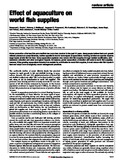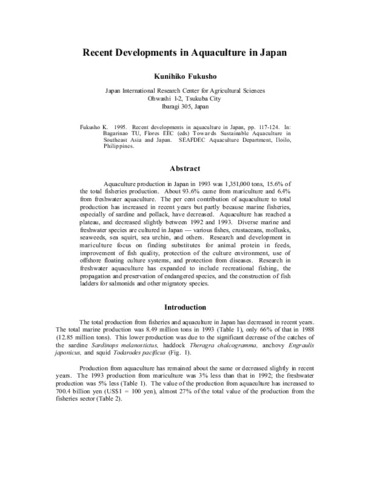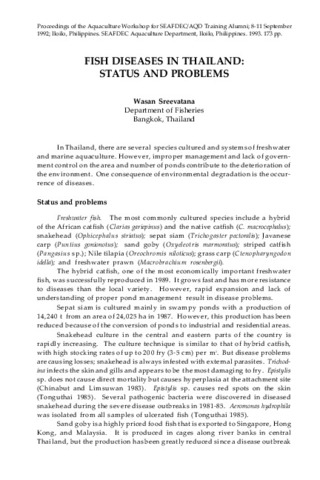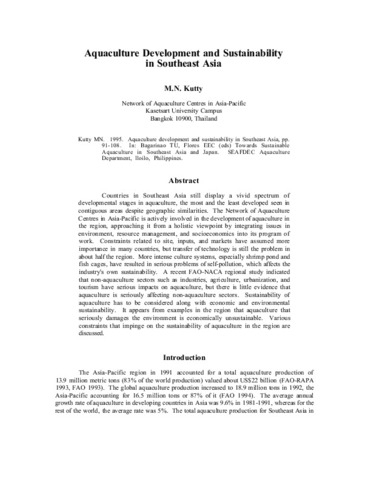Effect of aquaculture on world fish supplies

Associated URL
www.earthedintl.orgDate
2000Author
Page views
739Metadata
Show full item recordCited times in Scopus
Share
Abstract
Global production of farmed fish and shellfish has more than doubled in the past 15 years. Many people believe that such growth relieves pressure on ocean fisheries, but the opposite is true for some types of aquaculture. Farming carnivorous species requires large inputs of wild fish for feed. Some aquaculture systems also reduce wild fish supplies through habitat modification, wild seedstock collection and other ecological impacts. On balance, global aquaculture production still adds to world fish supplies; however, if the growing aquaculture industry is to sustain its contribution to world fish supplies, it must reduce wild fish inputs in feed and adopt more ecologically sound management practices.
Suggested Citation
Naylor, R. L., Goldburg, R. J., Primavera, J., Kautsky, N., Beveridge, M. C. M., Clay, J., Folke, C., Lubchenco, J., Mooney, H., & Troell, M. (2000). Effect of aquaculture on world fish supplies. Nature , 405(6790), 1017-1024. https://doi.org/10.1038/35016500
DOI
10.1038/35016500Subject
Collections
- AQD Journal Articles [1249]
Related items
Showing items related by title, author, creator and subject.
-
Recent developments in aquaculture in Japan
Fukusho, K. (Aquaculture Department, Southeast Asian Fisheries Development Center, 1995)Aquaculture production in Japan in 1993 was 1,351,000 tons, 15.6% of the total fisheries production. About 93.6% came from mariculture and 6.4% from freshwater aquaculture. The per cent contribution of aquaculture to total ... -
Fish diseases in Thailand: Status and problems
Sreevatana, Wasan (Aquaculture Department, Southeast Asian Fisheries Development Center, 1993)In Thailand, there are several species cultured and systems of freshwater and marine aquaculture. However, improper management and lack of government control on the area and number of ponds contribute to the deterioration ... -
Aquaculture development and sustainability in Southeast Asia
Kutty, M. N. (Aquaculture Department, Southeast Asian Fisheries Development Center, 1995)Countries in Southeast Asia still display a vivid spectrum of developmental stages in aquaculture, the most and the least developed seen in contiguous areas despite geographic similarities. The Network of Aquaculture Centres ...




